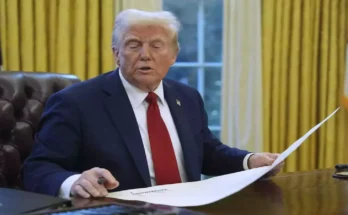Key Takeaways
- Along with possible tax breaks for virtual assets, Hong Kong unveils its first AI finance policy framework.
- The Securities and Futures Commission (SFC) intends to fully regulate cryptocurrency exchanges by the end of the year.
- Hong Kong’s policies are designed to draw in investors and strengthen its status as a major financial center.
Hong Kong has suggested tax cuts on cryptocurrency holdings and unveiled new regulations centered on the use of AI in the banking sector.
This new project highlights Hong Kong’s ambition to become Asia’s leading business and technological hub, currently ranking as the third-ranked global financial center in the globe.
An outline of Hong Kong’s tax initiatives, AI policy, and framework for crypto licensing
Financial Services Secretary Christopher Hui clarified during Hong Kong’s annual Fintech Week that the city’s extensive financial environment makes it well-positioned to use AI in financial markets.
According to him, sector-specific agencies will be able to address AI risks and potential with customized laws thanks to this dual-track regulatory strategy.
By the end of 2024, the Securities and Futures Commission (SFC), Hong Kong’s financial authority, hopes to have a list of authorized cryptocurrency exchanges.
Hong Kong Exchanges and Clearing Limited intends to launch a virtual asset index series on November 15 to support this initiative and create benchmarks for Bitcoin and Ethereum prices throughout the Asia-Pacific time zone. In addition, the government has suggested tax breaks for bitcoin investments made in the area.
The proceeds of cryptocurrency transactions are not currently subject to capital gains taxes in Hong Kong. Crypto taxes may increase by up to 45%, in contrast to nations like Germany and Japan.
But in Hong Kong, gains from regular trading are liable to income tax, which may be as high as 17%. In 2025, a consultation panel will be established to support permitted exchanges and promote further cooperation, according to Executive Director Eric Yip.



